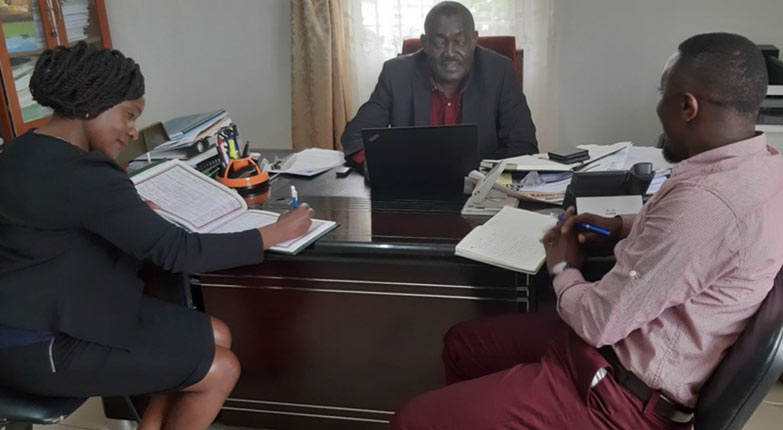As we start the New Year, the CropLife Africa Middle East team wishes you all a successful 2020.
Looking into 2020 and beyond, I am proud to be a part of an industry that is working to make growth in agriculture in the countries of Africa Middle East a reality. Challenges have dominated agriculture over the past year, the invasion of FAW, locust plagues, climate change and increased activism and media attention on the perceived risks of pesticides to consumers placing science-based decision making under scrutiny. Faced with these challenges, the efforts of CL AME and its national associations remain dedicated to advocate and encourage governments to rely on science-based decision-making.
Before we move onto 2020, let’s look back and reflect on some of the notable achievements of the past year. CropLife AME staff worked diligently to increase the resilience of decision makers, the development of regulatory frameworks focussing specifically on harmonisation and data protection and the effective management of regulatory issues. Our efforts also covered the adoption of CBI guidelines by the EAC Sectorial council and the enhancement on the setting of MRL’s, consumer safety and trade in Africa’s agricultural commodities. We also intensified our dialogue among the regulatory authorities in more than 23 countries through our Sub-regional workshops in the region. Critical topics addressed included: Emergency Registration Procedures – in the light of emerging pests and diseases; changing policy landscape for pesticides, especially highlighting the MRL import tolerances and hazard based regulatory decision making. Also, strides in the implementation of GHS, Protection of Confidential Business Information, Risk Assessment Procedures for both conventional and Biologicals, Mode of Action labelling, Regulations and Quality Assessment in anti-counterfeiting efforts and minor formulation changes and risk mitigation.
We also continued with our commitment on the advancement of sustainability and stewardship across the region. In the past year, we continued to support efforts in container management in 9 countries and advocated on the implementation of Mode of Action labelling. The SSP concept continues to be our main driver in rolling out IPM/RU with partners. Our commitment to contribute in managing the threat of food security posed by Fall Armyworm was a ToT workshop held for West African countries and to ensure the rollout to farmers to fight this pest.
On the challenge of counterfeit and illegal products, we worked diligently to nurture coalitions and stakeholder alliances. These included the likes of USDA-USAID-Michigan State University initiative in West Africa, the US DoJ/ICHIP-USPTO in a joint workshop attended by 12 francophone countries in Africa and REACT in Nigeria and Kenya, INTERPOL in Cape Town, the WCO-JICA in Kenya, the WIPO-Ethiopia IPO and the Ghana Customs (GRA)-SGS. This level of cooperation gave us the opportunity to reinforce and empower our messages to both, governments and the media in the region to address the challenges of the counterfeiting as a collective responsibility.
For 2020, we aim to concentrate our efforts in establishing strategic partnerships in order to provide a common voice through multi-stakeholder approaches. This will help to advance solutions to the many challenges facing our industry in our region. In addition to the above we are committed to:
It’s both a privilege and opportunity to play a part in helping agriculture in Africa Middle East grow and the CL AME team is proud to pursue this mission.


